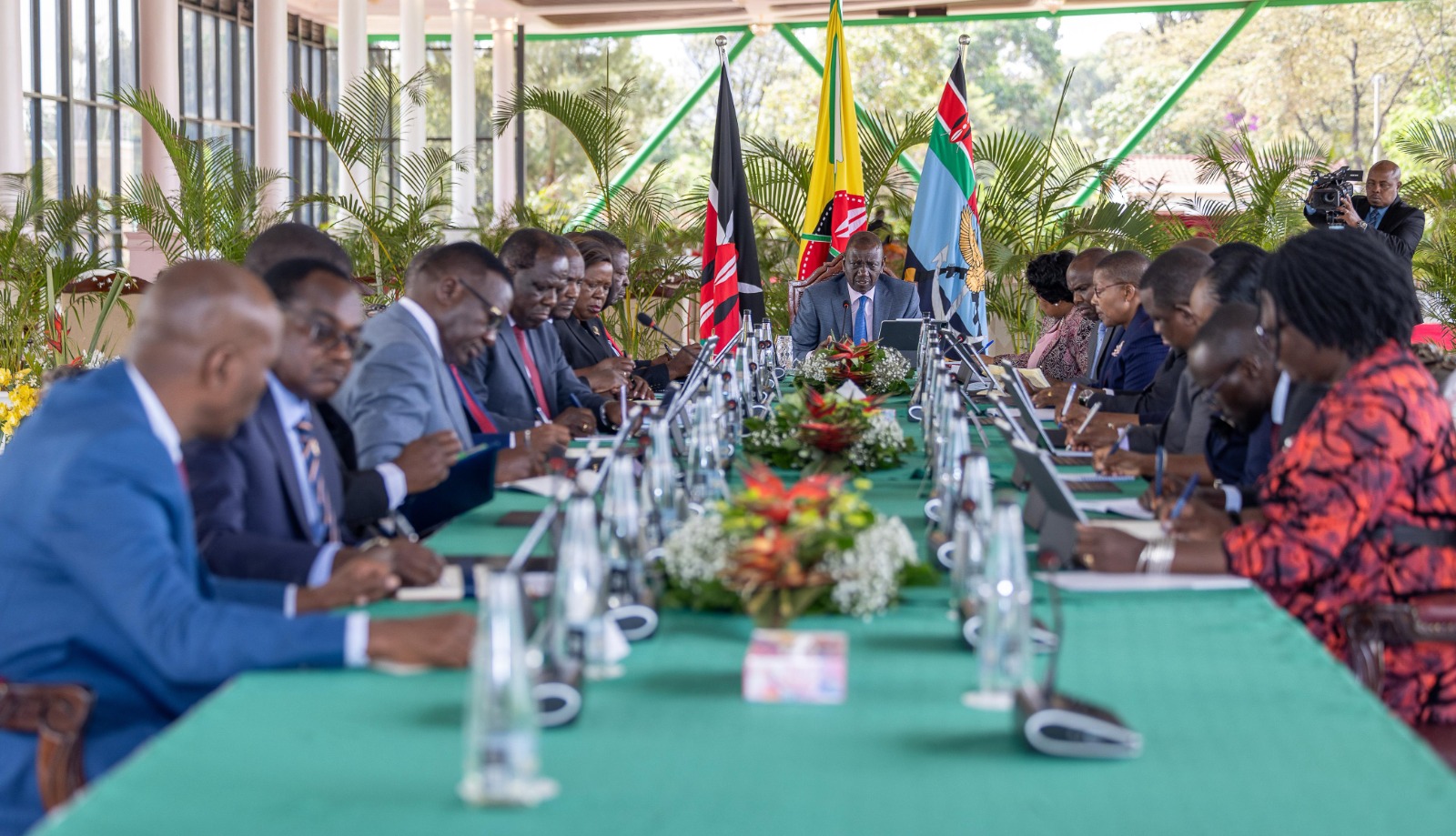The Cabinet has approved the Finance Bill, 2025, in a strategic effort to strengthen fiscal discipline and overhaul the country’s tax framework.
Chaired by President William Ruto at State House, Nairobi, the Cabinet emphasized the Bill’s role in reducing the fiscal deficit and promoting more efficient use of public funds.
The proposed Bill, now on its way to Parliament, forms part of the broader 2025/26 budget strategy aimed at narrowing the fiscal deficit to 4.5% of GDP—an improvement from the previous year’s 5.1%. A Cabinet brief highlighted that the Bill aims to seal tax loopholes, streamline tax administration, and increase transparency, particularly by tackling issues around inflated tax refund claims and inefficient tax expenditures.
Rather than introducing new taxes, the Bill seeks to simplify existing laws by amending key statutes including the Income Tax Act, VAT Act, Excise Duty Act, and the Tax Procedures Act. Notably, small businesses stand to benefit from a new provision allowing them to deduct the full cost of tools and equipment in the year of purchase—offering a critical boost to cash flow and investment.
In a significant gesture towards retirees, all gratuity payments from both public and private sectors will now be tax-exempt. Additionally, employers will be mandated to automatically apply Pay As You Earn (PAYE) tax reliefs, eliminating the need for employees to claim them manually from the Kenya Revenue Authority (KRA).
These reforms align with the government’s Bottom-Up Economic Transformation Agenda (BETA), which aims at inclusive growth.
The Cabinet also endorsed several other initiatives, including the creation of County Emergency Funds, improved retirement benefits for judges, new healthcare infrastructure, and plans to open a Kenyan Consulate General in Haiti—reflecting the country’s expanding global engagement.









